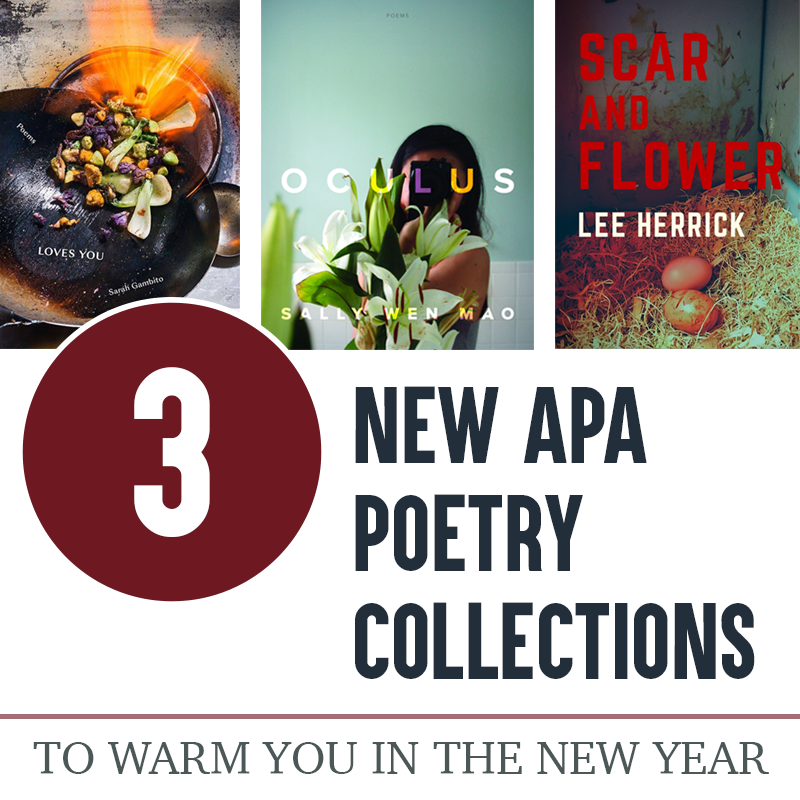
Happy New Year! 2019 promises to be another exciting year in the world of APA poetry, and so thought we’d start the year off with a bang—by celebrating three fantastic new books that are the top of our reading list this January. For this month’s roundup, we’ve gathered three collections that explore lineage lost, erased, revived for the poets to come. They are precious works that speak to the interdependencies and support that are central to writing and bearing witness, generation after generation. We hope you’ll enjoy these books as much as we have and that, in savoring them, you’ll be able to engage in your own times of reflection this January—to consider those who came before and those who will come after.
* * *
Oculus by Sally Wen Mao (Graywolf, 2019)
Sally Wen Mao’s Oculus is a jolting lyric study of the white
Scar and Flower by Lee Herrick (Word Poetry, 2019)
The latest collection from Lee Herrick, Scar and Flower, considers what it means to make room in a brutal system of continuous war, climate disaster, mass shootings, deportations, and suicides. As Herrick builds psychic dwellings for repair, the poems in Scar and Flower bring to mind the etymology of “stanza”—a room, a resting point, a space to breathe. By drawing from familiar words and worlds, Herrick gives dimension to these spiritual spaces: the sky’s numerous stars are a reminder of his heritage as a man “born on the other side / of the world” (46); water reminds us of our “resting state” (23); the body is “a song called birth,” venturing out into the world, seeking out and losing its lyrics (48). Lee’s rhapsodic moments return to inherent contradictions of pain and desire—and guide the reader as these knots are worked out through communion with self, other, and
Loves You by Sarah Gambito, (Persea, 2019)
Reading Loves You by Sarah Gambito is like thumbing through a grandmother’s scrawled cooking notes, like setting the table for one’s chosen family. Central to Gambito’s collection are poem-recipes, which gain significance through context—“Watermelon Agua Fresca (For When You Need Me),” for instance, takes the form of a list of instructions but ends as a subtle, loving address: “Serve in ice-filled glasses and know how much I love you” (64). At the same time, cooking, as in the poem “Cento,” can just as easily become absorbed, commodified, and twisted into demands for a domestic worker to “do the food,” followed up by: “You cannot cook Filipino food in the kitchen” (18). Even as Gambito never lets her readers forget that love, too, is labor shaped by the legacies of capitalism, imperialism, and colonization, Loves You is a crucial reminder that cutting up chicken and piping lychee cream can be sacred gestures of abundant love, crucial links to homes an ocean away.
* * *
What poetry collections have you been reading to start out your new year? And what books are you looking forward to in the coming months? Share them with us in the comments or let us know onTwitter, Facebook, or Instagram (@LanternReview).